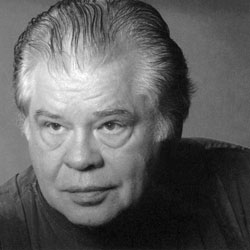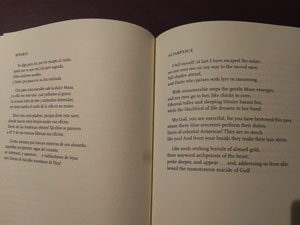Canadian poet Lillian Allen, the “godmother of dub,” has been chosen as Vancouver Island University’s 2020-21 Gustafson Distinguished Poet.
On February 10, Allen will offer a reading/performance, followed by a Q&A.
On February 11, Allen will deliver the Gustafson Lecture. Allen’s talk will discuss the history and practice of dub poetry (& spoken word) as it speaks to resistance, resilience, transcendence and revolution.
Learn more here.
Join artist-writer Chantal Gibson, poet Otoniya J. Okot Bitek, and SFU librarian Ebony Magnus for a night of readings and reflection, as they discuss un/settled, the towering, photo-poetic art installation at the corner of Hastings and Richards in Vancouver that drapes Black womanhood over 240 ft2 of SFU Belzberg Library’s street-front windows. In conversation, the panelists will consider what it means to centre Black bodies in the downtown landscape, and to reimagine how spaces closed by the pandemic can open dialogues about justice, solidarity, and the beauty of Black lives. All three live and work with gratitude on the unceded, traditional, ancestral lands of the Coast Salish Peoples.
Learn more here.
InkWell Workshops presents an online poetry workshop with Griffin Poetry Prize winner Liz Howard. In this workshop, participants will read and write poetry exploring the relationship between the land we live on and our interior worlds. No experience is necessary.
Learn more here.
Canadian poet Lillian Allen, the “godmother of dub,” has been chosen as Vancouver Island University’s 2020-21 Gustafson Distinguished Poet.
On February 10, Allen will offer a reading/performance, followed by a Q&A.
On February 11, Allen will deliver the Gustafson Lecture. Allen’s talk will discuss the history and practice of dub poetry (& spoken word) as it speaks to resistance, resilience, transcendence and revolution.
Learn more here.
For her recently released anthology, The Black Prairie Archive, Karina Vernon spent 15 years researching and resurrecting writings from 19th century Black pioneers and contextualizes them alongside contemporary Canadian writers. Through this new anthology, a new perspective on Western Canada, informed by Black voices, is explored in relationship to the literary traditions of the Canadian Prairies.
Karina Vernon alongside author and poet Kaie Kellough discuss The Black Prairie Archive with host Ismaila Alfa.
Learn more here.
Join the Hudson Valley Writers Center as Carolyn Forché and Lori Soderlind read from their recent memoirs and engage in a lively Q&A. This reading is free on Zoom. Donations at any level are encouraged and greatly appreciated. The Zoom link will be sent at the time of registration.
Learn more here.
Help Alaska Quarterly Review (AQR) reach new literary milestones. Please mark your calendars for Pièces de Résistance, an extraordinary benefit series celebrating AQR’s 40th anniversary. Join the publication for 21 free, live online readings and conversations, featuring 58 exceptional new, emerging, and established poets and writers who have appeared in AQR. Pièces de Résistance runs from October 4, 2020 to May 2, 2021 hosted by the Anchorage Museum and moderated by author Heather Lende and AQR Co-Founder and Editor Ronald Spatz.
While all of the Pièces de Résistance events are free, consider making a tax-exempt donation to support AQR through our 501c3 affiliate, the Center for the Narrative & Lyric Arts.
This event features readings by Felicia Zamora, Peggy Shumaker and Maurya Simon.
Learn more here.
What we are looking for: We want your brave, your pain, your love, your teeth, your howling beast. All styles, forms and schools of poetry & art are welcome.
Learn more here.
Derek N. Otsuji and Mark Tarren read from their poetry. Evening includes literary trivia quiz and open mic.
Derek N. Otsuji is the author of The Kitchen of Small Hours, winner of the 2021 Crab Orchard Review Poetry Series Open Competition. It will be published by SIU Press in fall 2021. His poems have appeared or are forthcoming in The Threepenny Review, The Southern Review, Rattle, Poet Lore, and Pleiades.
Mark Tarren is a poet and writer who lives on remote Norfolk Island in the South Pacific. A Pushcart nominee, his poems have appeared or are forthcoming in various literary journals including The New Verse News, The Blue Nib, Poets Reading The News, Street Light Press, Spillwords Press, Tuck Magazine and Impspired Magazine.
Learn more here.




